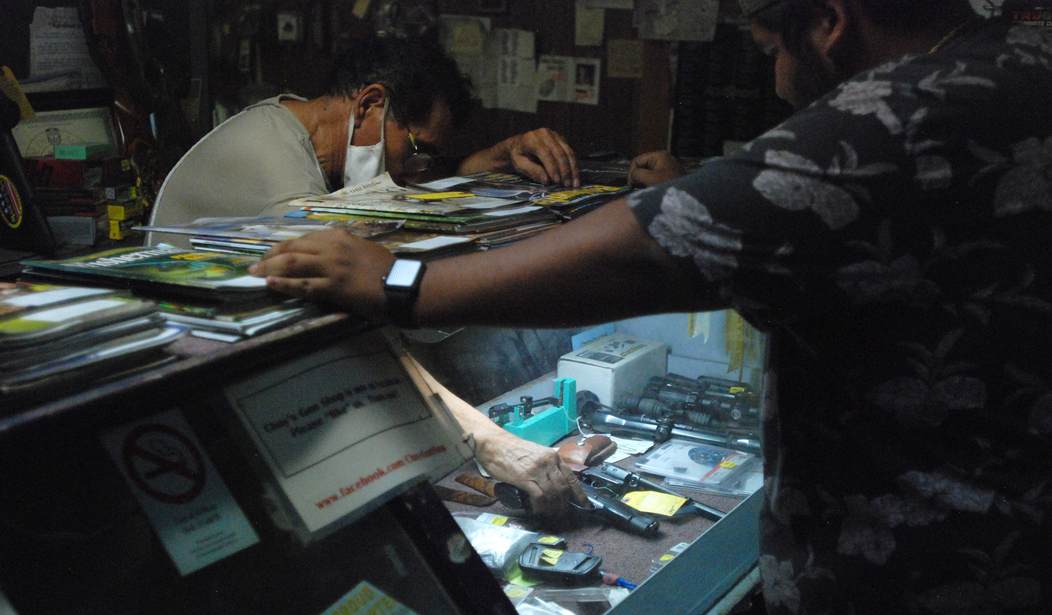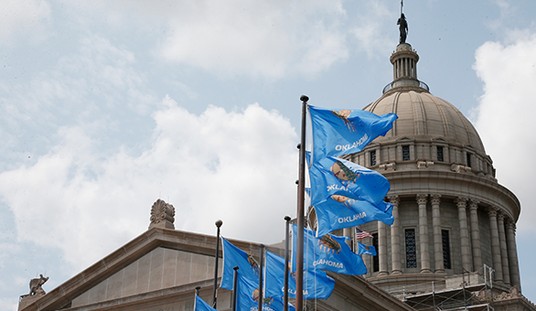As part of the ongoing effort to make exercising our Second Amendment rights as expensive and unaffordable as possible, a New York state senator has introduced legislation that would compel every gun owner in the Empire State to purchase a liability insurance policy.
Sen. Kevin Parker, a Brooklyn Democrat, wants to require anyone who possesses (or plans to purchase) a firearm to "obtain and continuously maintain a policy of liability insurance to cover any damages" that result from the use or misuse of the gun. A companion bill has been introduced in the New York Assembly as well, so gun controllers are pursuing a two-track strategy of implementing the insurance mandate into law.
The push to pass the new legislation comes shortly after Governor Kathy Hochul signed three more gun-control measures into law, including a ban on "pistol converter devices' which were already banned at the federal level.
During her address last week, Hochul also touted a 53% decline in shootings year-to-date compared to a pandemic peak in 2022.
The new bill goes on further, saying insurance policies will safeguard innocent bystanders from medical expenses in the event of a shooting.
"By having this insurance policy in place, innocent victims of gun-related accidents will be compensated for the medical care for their injuries," the bill states.
Would it really though? Typically liability insurance doesn't cover intentional criminal acts, so if someone stole a gun and used it in a drive-by shooting, the lawful gun owner's liability policy wouldn't kick in or pay the medical expenses for anyone who was injured. Even when it comes to "accidental" shootings, insurance companies have a vested interest in determining that those incidents involved negligence on the part of the gun owner, which would also negate any liability coverage.
Though the bill is in committee again, multiple attempts have failed in the past, including most recently during the 2023-24 legislative session.
Other efforts also occurred in 2013-14, 2015-16, 2017-18, 2019-2020 and 2021-22.
Gun rights organizations have pointed towards previous rulings by the U.S. Supreme Court that, while not explicitly including firearms as the central focus, noted that excessive taxation on constitutionally guaranteed rights is unconstitutional.
The bill joins a host of other pending legislation that would implement new regulations, ranging from a 10-day wait period to further restrictions of "sensitive spaces" where lawful concealed carry would not be allowed.
Whether or not the courts would see an insurance mandate as a tax on an enumerated right remains to be seen. Back in 2023 a federal judge in California declined to issue an injunction against San Jose's insurance mandate, which was the first in the nation, holding that such a provision comports with the national tradition of gun ownership. A similar challenge to a mandatory fee on gun owners imposed by the city was also thrown out by the Ninth Circuit Court of Appeals on technical grounds after the appellate court concluded that "no real threat of injury currently exists because the city has not set a precise collection date for the fee."
While the San Jose ordinance will continue to face legal challenges going forward, legislators in one red state have taken steps to insure that no localities within its borders can follow the lead of the California city. In January of this year Ohio Gov. Mike DeWine signed legislation that forbids municipalities and political subdivisions from enacting an insurance mandate of their own, and the law officially took effect last week.
Eric Delbert, owner of LEPD Firearms and Range, expressed relief over the new legislation.
"Giving people the ability to have that Second Amendment and purchase firearms comes with a lot," Delbert said. "Taking this out of the mix is really a headache we were concerned about for the last couple of years now knowing that going forward that's something we don't have to worry about."
The law introduces two major changes: it prevents financial institutions from tracking transactions made at gun stores and prohibits the requirement of firearm liability insurance for gun owners.
During the legislative debate in December, Rep. Dontavius Jarrells voiced opposition to the bill, emphasizing the importance of liability insurance.
"Weapons come with inherent risk," Jarrells said. "The inherent risk of insurance is to mitigate those risks, protecting individuals or families from the devastating financial and emotional toll of unintentional shootings."
Delbert argued against the necessity of liability insurance, stating, "We saw many states that were not necessarily pro-gun states try to put in legislation that if you owned a firearm that you had to carry liability insurance. There was no reasoning behind that other than to put a hurdle for people who were going to be buying a gun."
That's absolutely right. There's not a single state in the Union that requires anyone who keeps alcohol or sharp pointy knives in their home to carry liability insurance, for instance. It's firearms that are singled out, and as Delbert suggests, it's really for one reason only: to make it more difficult and expensive to exercise a fundamental right. An insurance mandate may not be the same as a government-imposed tax, but it is a government-imposed cost, and one that is aimed directly at the right to keep and bear arms for self-defense.
As noted above, this isn't the first year that anti-gun politicians in New York have tried to get an insurance mandate to the governor's desk, and they may very well fail again this year. But as is evident by the multiple introductions of these measures over the years, the anti-gunners aren't going to give up just because they don't get their way in one session or in one state. They're pernicious in their efforts to infringe on our Second Amendment rights, whether through outright bans or more creative maneuvers that are aimed at making those rights too expensive for working-class Americans and those struggling to get by.









